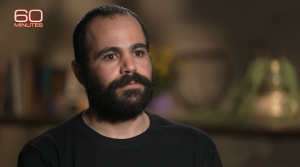There are particularly high levels of hostility toward Jews or Israel on Canadian campuses, according to a new study about anti-Semitism at North American universities.
The Brandeis University report, which was released last week, was based on an online survey of more than 3,000 North American university students who had applied for, but not yet taken, a free, 10-day Birthright Israel trip.
One-third said they had been verbally harassed over the past year because they were Jewish, while almost three-quarters reported having been exposed to anti-Semitic statements, including the claim that Jews have too much power and that Israelis behave “like Nazis” toward Palestinians. A quarter of respondents said they had “been blamed during the past year for the actions of Israel because they were Jewish.”
The study also noted, however, that the prevalence of anti-Israel and/or anti-Semitic attitudes on campus did not diminish Jewish students’ feelings of connection to Israel. Although they viewed their campuses as hostile to Israel, two-thirds of students surveyed in the study said they felt connected to Israel. Those levels “are higher than those found among similar individuals in 2014, before the Israel-Hamas conflict,” the study found.
The study, co-authored by Leonard Saxe, Klutznick Professor of Contemporary Jewish Studies at Brandeis, was conducted by the Maurice and Marilyn Cohen Center for Modern Jewish Studies at Brandeis in April.
Saxe said more than 400 Canadian students were surveyed, half of them undergraduates. “The study wasn’t designed to identify individual schools – the samples per school are too small to be highly reliable,” he said. “But virtually all the universities where there are Jewish students in Canada were included. And a fairly clear pattern emerged.”
The study singled out Canadian and Californian universities as places where hostility toward Jewish students was especially high. Saxe said there are a host of possible reasons why some campuses experience more problems than others. Those reasons include the number and level of identification of Jewish students.
“The more identified and connected to Israel attract more hostility and may, as well, be more sensitive to it,” he explained.
“Another reason could be the number and strength of groups opposed to Israel’s right to exist, and the willingness or ability of university faculty and administrators to create a climate of safety and high-level discourse.”
Rabbi Philip Bregman, executive director of Hillel BC, said the results of the study were not surprising to him.
“One of the major effects of the boycott, divestment and sanctions [BDS] movement is that it brings out and allows for a toxic environment whereby people think it’s OK now to start saying outrageous things about Israel and Jews,” he said.
“It opens Pandora’s box and gives professors and others a sense of empowerment to go in a direction they wouldn’t have gone before. Once you allow this unfiltered and biased and absurd criticism of Israel per se, it opens the doors for everything.”
Rabbi Bregman said that based on what Hillel BC experienced fighting BDS on campus last year, he was not in the least surprised that the Brandeis study singled out universities in Canada.
But Marc Newburgh, executive director at Hillel of Greater Toronto, insisted that the vast majority of Jewish students at York university and other campuses across the GTA “enjoy a positive living and learning environment year round.”
“While obviously there are challenges that our students face, we at Hillel of Greater Toronto and our colleagues at [the Centre for Israel and Jewish Affairs] devote considerable time and community resources to support these students and their efforts to counter anti-Israel activism. The most recent example was the support we provided to our students that helped to achieve a successful outcome at the University of Toronto, where a BDS vote was defeated by a wide margin just [last] week,” he said.






